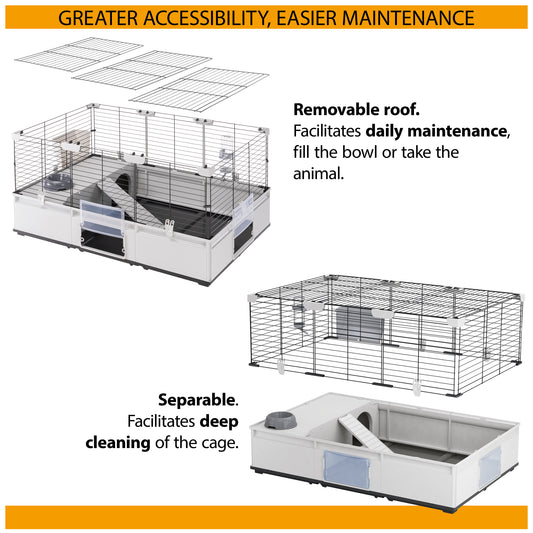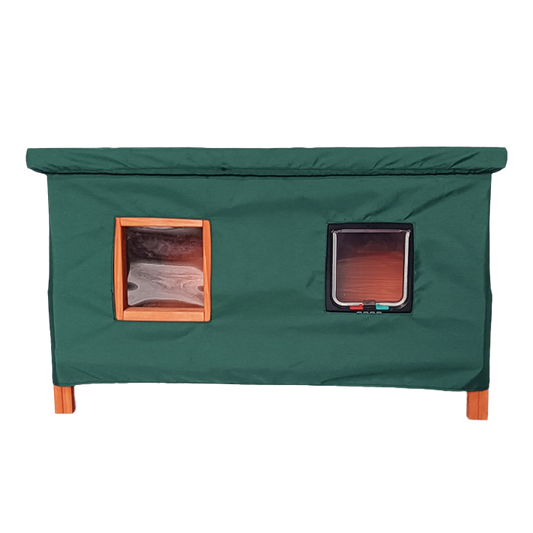Cats are solitary animals that enjoy their own company but they can get bored if left for long periods of time with nothing to do. This is more of an issue with indoor-only cats who miss out on the physical exercise and mental stimulation associated with the outdoors. Familiarise yourself with the signs of boredom in cats and if you think your pet could be under-stimulated, try some of our boredom-busting ideas.
How do I know if my cat is bored?
Signs that a cat is bored and under-stimulated include:
- Over-eating or lack of appetite
- Sleeping more than usual
- Destructive behaviour, such as clawing furniture
- Over-grooming to the point of hair loss
- Toileting outside of their litter box
If you notice that your cat has started to display any of the negative behaviours above, you should get them checked over by your vet to ensure there are no underlying health issues that could be causing it. Once you’ve ruled out medical causes you can address the possibility that your pet needs more physical and/or mental stimulation to be happy.
Indoors vs outdoors
More owners, especially those in urban areas, are keeping their pets indoors for safety reasons. Cats that are kept exclusively indoors are safe from busy roads, are unable to get into fights with neighbourhood cats and are protected from becoming lost or stolen. However, cats kept indoors can easily become bored if they are not sufficiently stimulated, which can lead to depression and behavioural issues.
The choice of whether you allow your pet access to the outdoors or not will have an impact on their wellbeing, health and happiness, so you will need to weigh up the pros and cons for your individual cat. If you have a cat that has previously enjoyed an outdoors life, they will be less likely to accept being shut in but if you have an elderly cat or a cat with impaired senses, they may be happier indoors.
How to keep your pet busy
The best ways to keep a cat entertained and happy is to allow them to indulge in their natural hunting instincts.
- Make your cat work for their food by putting it in a puzzle feeder or treat ball, or hiding their kibble around the house for them to find. Using food in this way will give your cat a good mental workout during meal times, keeping boredom at bay.
- If your cat does not have access to the outdoors, ensure they have plenty of indoor space to use across several rooms of the house.
- Put scratching posts in various locations so that your cat can burn off energy while sharpening their claws. This should also save them from scratching your furniture and causing destruction in the home. A cat activity centre increases the fun, diversity and engagement, as well as giving your cat a perch so they can survey the area.
- Make sure your cat has plenty of opportunities to play when you’re not around. Cardboard boxes and screwed up paper make good homemade toys or look at some of the interactive toys that can keep your cat occupied for longer. The Catit Senses range of toys for example will keep a cat engaged for hours!
- When you can, make time to play with your cat using games that emulate hunting so that they can stalk, pounce and jump. Fishing rod type cat toys are a great way of encouraging these behaviours and the act of stalking prey actually releases happy hormones in a cat’s brain.
- If you have a garden but don’t feel happy about your cat roaming free, you could erect some fencing that is positioned inwards to make it impossible for your cat to climb, or build a closed-in wooden and wire structure to keep them contained while having a little freedom to explore and smell the outside world.
With our busy modern lives, it is not possible to keep our pets entertained 24/7 but with a bit of planning and consideration you can keep your cat busy and happy.
If you found this article interesting, why not check out:









